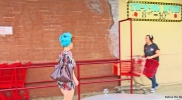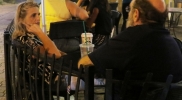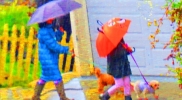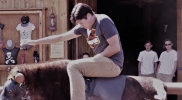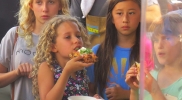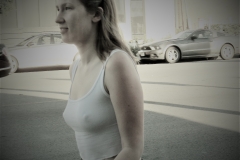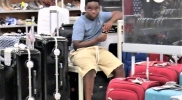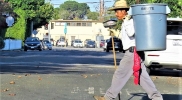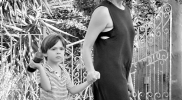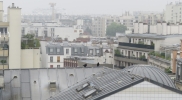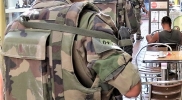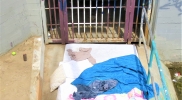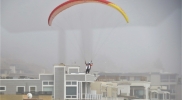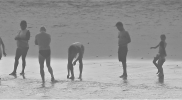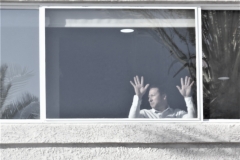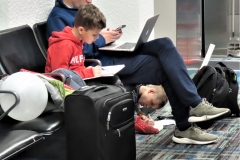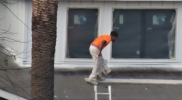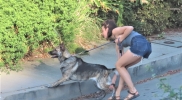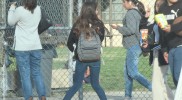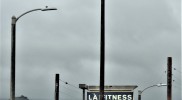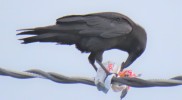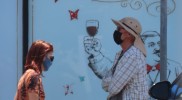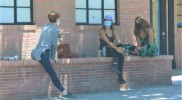|
|
Best Poems - War
Best Poems – WAR
|
| |
| How I learned to Sweep – Julia Alvarez
“My mother never taught me sweeping. . .
One afternoon she found me watching
t.v. She eyed the dusty floor
boldly, and put a broom before
me, and said she’d like to be able
to eat her dinner off that table,
and nodded at my feet, then left.
I knew right off what she expected
and went at it. I stepped and swept;
the t.v. blared the news; I kept
my mind on what I had to do,
until in minutes, I was through.
Her floor was as immaculate
as a just-washed dinner plate.
I waited for her to return
and turned to watch the President,
live from the White House, talk of war:
in the Far East our soldiers were
landing in their helicopters
into jungles their propellers
swept like weeds seen underwater
while perplexing shots were fired
from those beautiful green gardens
into which these dragonflies
filled with little men descended.
I got up and swept again
as they fell out of the sky.
I swept all the harder when
I watched a dozen of them die. . .
as if their dust fell through the screen
upon the floor I had just cleaned.
She came back and turned the dial;
the screen went dark. That’s beautiful,
she said, and ran her clean hand through
my hair, and on, over the window-
sill, coffee table, rocker, desk,
and held it up—I held my breath—
That’s beautiful, she said, impressed,
she hadn’t found a speck of death.” |
| What Did I Learn In The Wars – Yehuda Amichai
(trans. by Benjamin Harshav and Barbara Harshav)
“What did I learn in the wars:
To march in time to swinging arms and legs
Like pumps pumping an empty well.
To march in a row and be alone in the middle,
To dig into pillows, featherbeds, the body of a beloved woman,
And to yell ‘Mama,’ when she cannot hear,
And to yell ‘God,’ when I don’t believe in Him,
And even if I did believe in Him
I wouldn’t have told him about the war
As you don’t tell a child about grown-ups’ horrors.
What else did I learn. I learned to reserve a path for retreat.
In foreign lands I rent a room in a hotel
Near the airport or railroad station.
And even in wedding halls
Always to watch the little door
With the ‘Exit’ sign in red letters.A battle too begins
Like rhythmical drums for dancing and ends
With a ‘retreat at dawn.’ Forbidden love
And battle, the two of them sometimes end like this.
But above all I learned the wisdom of camouflage,
Not to stand out, not to be recognized,
Not to be apart from what’s around me,
Even not from my beloved.
Let them think I am a bush or a lamb,
A tree, a shadow of a tree,
A doubt, a shadow of a doubt,
A living hedge, a dead stone,
A house, a corner of a house.
If I were a prophet I would have dimmed the glow of the vision
And darkened my faith with black paper
And covered the magic with nets.
And when my time comes, I shall don the camouflage garb of my end:
The white of clouds and a lot of sky blue
And stars that have no end.”
|
| |
The Sonnet-Ballad – Gwendolyn Brooks
“Oh mother, mother, where is happiness?
They took my lover’s tallness off to war.
Left me lamenting. Now I cannot guess
What I can use an empty heart-cup for.
He won’t be coming back here any more.
Some day the war will end, but, oh, I knew
When he went walking grandly out that door
That my sweet love would have to be untrue.
Would have to be untrue. Would have to court
Coquettish death, whose impudent and strange
Possessive arms and beauty (of a sort)
Can make a hard man hesitate—and change.
And he will be the one to stammer, ‘Yes.’
Oh mother, mother, where is happiness?”
|
| Homecoming – Martha Collins
“So you’re home from the wars,
or at least a summer
facsimile of them.
You’re welcome, but
please don’t rush.
there are some things
to be seen.First you’ll notice
these guests. You’ll call
them suitors, and be
mistaken: they’ve
not cluttered
the hearth or changed
the order of things.You’ll find the bed
in the same quiet place,
neatly spread as before.
But you should know
I’ve grown accustomed
to sleeping in all
its spaces.The sun-colored table
sits in the kitchen, prepared
for the usual
feasts, you’ll think
but I’m not quite ready
to serve your dinners,
to pour your wines.
I’d rather sit by the big
bay window, the one we saved
for special times.
There’s an extra chair,
but please be still,
for it’s here I’ve come
to reflect.
Perhaps you’ll resent
the uncommon manner
in which I’ve come
to possess our rooms.
But you can’t conceive
of the more extreme measures
I’ve thought of taking.
Like pounding stakes
in the floor and stretching
ropes to inform you
this or that is mine,
stamping my name
on favorite walls,
carving initials
on window sills,
or merely breathing
autograph spaces
on panes of glass.
But of course
we’re bound
to share, and it’s more
than a neat
arrangement
of tables and chairs and beds.
And perhaps it’s as
simple as getting familiar,
accepting
the common places again.
But please
understand,
and try to find
your own space
where you can see beyond
these ceilings and floors
and windows and walls.
It shouldn’t be hard:
you have been miles
away, after all,
while I have been
making myself at home.” |
| I Sit and Sew – Alice Dunbar-Nelson
“I sit and sew—a useless task it seems,
My hands grown tired, my head weighed down with dreams—
The panoply of war, the martial tread of men,
Grim-faced, stern-eyed, gazing beyond the ken
Of lesser souls, whose eyes have not seen Death
Nor learned to hold their lives but as a breath—
But—I must sit and sew.I sit and sew—my heart aches with desire—
That pageant terrible, that fiercely pouring fire
On wasted fields, and writhing grotesque things
Once men. My soul in pity flings
Appealing cries, yearning only to go
There in that holocaust of hell, those fields of woe—
But—I must sit and sew.The little useless seam, the idle patch;
Why dream I here beneath my homely thatch,
When there they lie in sodden mud and rain,
Pitifully calling me, the quick ones and the slain?
You need, me, Christ! It is no roseate seam
That beckons me—this pretty futile seam,
It stifles me—God, must I sit and sew?” |
| |
| My Sweet Old Etcetera – e. e. cummings
“my sweet old etcetera
aunt lucy during the recent
war could and what
is more did tell you just
what everybody was fightingfor,
my sister
isabel created hundreds
(and
hundreds) of socks not to
mention fleaproof earwarmers
etcetera wristers etcetera, my
mother hoped that
i would die etcetera
bravely of course my father used
to become hoarse talking about how it was
a privilege and if only he
could meanwhile my
self etcetera lay quietly
in the deep mud et
cetera
(dreaming,
et
cetera, of
Your smile
eyes knees and of your Etcetera)” |
| |
i sing of Olaf glad and big – e. e. cummings
“i sing of Olaf glad and big
whose warmest heart recoiled at war:
a conscientious object-or
his wellbeloved colonel (trig
westpointer most succinctly bred)
took erring Olaf soon in hand;
but—though an host of overjoyed
noncoms (first knocking on the head
him) do through icy waters roll
that helplessness which others stroke
with brushes recently employed
anent this muddy toiletbowl,
while kindred intellects evoke
allegiance per blunt instruments—
Olaf (being to all intents
a corpse and wanting any rag
upon what God unto him gave)
responds, without getting annoyed
‘I will not kiss your f.ing flag’
straightway the silver bird looked grave
(departing hurriedly to shave)
but—though all kinds of officers
(a yearning nation’s blueeyed pride)
their passive prey did kick and curse
until for wear their clarion
voices and boots were much the worse,
and egged the firstclassprivates on
his rectum wickedly to tease
by means of skilfully applied
bayonets roasted hot with heat—
Olaf (upon what were once knees)
does almost ceaselessly repeat
‘there is some s. I will not eat’our president,
being of which
assertions duly notified
threw the yellowsonofabitch
into a dungeon, where he died
Christ (of His mercy infinite)
i pray to see; and Olaf, too
preponderatingly because
unless statistics lie he was
more brave than me:more blond than you.” |
| Inventory – Günter Eich
(trans. by Joshua Mehigan)
“This is my cap,
this is my overcoat,
here is my shave kit
in its linen pouch.
Some field rations:
my dish, my tumbler,
here in the tin-plate
I’ve scratched my name.
Scratched it here with this
precious nail
I keep concealed
from coveting eyes.
In the bread bag I have
a pair of wool socks
and a few things that I
discuss with no one,
and these form a pillow
for my head at night.
Some cardboard lies
between me and the ground.
The pencil’s the thing
I love the most:
By day it writes verses
I make up at night.
This is my notebook,
this my rain gear,
this is my towel,
this is my twine.” |
| What Things Are Called [Vietnam War] – Erich Fried
(trans. by George Rapp)
“Why were you not like the tree Trung Quan?
a girl says
That means
her lover is one of those burnt
The leaves of the tree Trung Quan do not catch fire
like bamboo poles or like human skin
II
Lazy Dog
is the name for an iron cross
between aerial bomb and dum-dum bullet
Safety Detonator
is a peasant tied to a rope
and driven ahead across a minefield
Tug of War
is dragging a prisoner
on a rope
behind a tank
through a village
by way of warning
Bundle
is a corpse
in a plaited mat
Harvest
a row of Bundles
in a field
III
Some things mean as much
as the mood
of a high official or senior officer
And some mean as little
as the life of
a handful of peasants father mother three children
IV
Pacifying a village
means not only beheading
peasants who were suspect or had ben denounced
Pacifying also means
cutting out their liver
and throwing it into the air
The liver is the seat of courage
V
Wearing black jackets and trousers
means
being a peasant
Being killed
means afterwards
having been a Vietcong” |
| Channel Firing – Thomas Hardy (April, 1914)
“That night your great guns, unawares,
Shook all our coffins as we lay,
And broke the chancel window-squares,
We thought it was the Judgement-day
And sat upright. While drearisome
Arose the howl of wakened hounds:
The mouse let fall the altar-crumb,
The worms drew back into the mounds,
The glebe cow drooled. Till God called, ‘No;
It’s gunnery practice out at sea
Just as before you went below;
The world is as it used to be:
‘All nations striving strong to make
Red war yet redder. Mad as hatters
They do no more for Christés sake
Than you who are helpless in such matters.
‘That this is not the judgment-hour
For some of them’s a blessed thing,
For if it were they’d have to scour
Hell’s floor for so much threatening.
‘Ha, ha. It will be warmer when
I blow the trumpet (if indeed
I ever do; for you are men,
And rest eternal sorely need).’
So down we lay again. ‘I wonder,
Will the world ever saner be,’
Said one, ‘than when He sent us under
In our indifferent century!’
And many a skeleton shook his head.
‘Instead of preaching forty year,’
My neighbor Parson Thirdly said,
‘I wish I had stuck to pipes and beer.’
Again the guns disturbed the hour,
Roaring their readiness to avenge,
As far inland as Stourton Tower,
And Camelot, and starlit Stonehenge.” |
| |
| Sad Wars – Miguel Hernández
(trans. by Ted Genoways)
“Sad wars
it love is not the aim.
Sad, sad.Sad weapons
if they are not words.
Sad, sad.Sad men
if they do not die for love.
Sad, sad.” |
| |
| At A VA Hospital in the Middle of the United States of America: An Act in a Play – Etheridge Knight
Stars from five wars, scars,
Words filled with ice and fear,
Nightflares and fogginess,
and a studied regularity.
Gon’ lay down my sword ’n’ shield—
Down by the river side, down by the river side—
Down by the river side…
Former Sergeant Crothers, among the worst,
Fought the first. He hears well, tho
He mumbles in his oatmeal. He
Was gassed outside Nice. We
Tease him about “le pom-pom,” and chant:
“There’s a place in France where the women wear no pants.”
Former Sergeant Crothers has gray whiskers
And a gracious grin,
But his eyes do not belie
His chemical high.
Gon’ lay down my sword ’n’ shield—
Down by the river side, down by the river side—
Down by the river side…
A.C. Williams drove a half-track
“Half da goddamn way ’cross Africa
In da second war,” his black
Face proclaims, and exclaims—
Along with other rosy exaggerations.
Each week he sneaks through the iron-wrought fence
To the Blinking Bar down the street.
Midnight reeks the red-eyes, the tired
Temper, the pains in the head.
A phone call summons an aide to bring A. C. to bed.
Ain’t gon’ study the war no more… Well,
I ain’t gonna study the war no more—
Ain’t gonna study the war no more—
O I ain’t gonna study the war no more.
“Doc” Kramer, ex-medic in Korea
Is armless. And legless,
is an amazement of machines
And bubbling bottles. His nurse,
White starched and erect, beams
A calloused cheerfulness:
“How are we today?” Kramer’s wife leans
Forward, sparkling fingers caressing his stump
Of arm. She is pink, fifty-six, and plump.
“Doc” Kramer desires sleep.
Gon’ lay down my sword ’n’ shield—
Down by the river side, down by the river side—
Down by the river side…
Ex PFC Leonard Davenport goes to court
Tomorrow. He is accused of “possession and sale”
Of narcotics; his conditional bail
Was that he stay at the VA, for the cure.
For an end to sin,
For a surcease of sorrow.
He spends his pension for ten grams of “pure.”
He nods the days away,
And curses his Ranger Colonel in fluent Vietnamese.
His tour in “Nam” is his golden prize.
Gon’ lay down my sword ’n’ shield—
Down by the river side, down by the river side—
Down by the river side…
Grant Trotter’s war was the south side
Of San Diego. Storming the pastel sheets
Of Mama Maria’s, he got hit with a fifty
Dollar dose of syphilis. His feats
Are legends of masturbation, the constant coming
As he wanders the back streets of his mind.
The doctors whisper and huddle in fours
When Trotter’s howls roam the corridors.
We listen. We are patient patients.
Ain’t gon’ study the war no more… Well,
I ain’t gonna study the war no more—
Ain’t gonna study the war no more—
O I ain’t gonna study the war no more.
|
Thanks – Yusef Komunyakaa
“Thanks for the tree
between me & a sniper’s bullet.
I don’t know what made the grass
sway seconds before the Viet Cong
raised his soundless rifle.
Some voice always followed,
telling me which foot
to put down first.
Thanks for deflecting the ricochet
against that anarchy of dusk.
I was back in San Francisco
wrapped up in a woman’s wild colors,
causing some dark bird’s love call
to be shattered by daylight
when my hands reached up
& pulled a branch away
from my face. Thanks
for the vague white flower
that pointed to the gleaming metal
reflecting how it is to be broken
like mist over the grass,
as we played some deadly
game for blind gods.
What made me spot the monarch
writhing on a single thread
tied to a farmer’s gate,
holding the day together
like an unfingered guitar string,
is beyond me. Maybe the hills
grew weary & leaned a little in the heat.
Again, thanks for the dud
hand grenade tossed at my feet
outside Chu Lai. I’m still
falling through its silence.
I don’t know why the intrepid
sun touched the bayonet,
but I know that something
stood among those lost trees
& moved only when I moved.”
|
| |
| If We Must Die* – Claude McKay
“If we must die, let it not be like hogs
Hunted and penned in an inglorious spot,
While round us bark the mad and hungry dogs,
Making their mock at our accursèd lot.
If we must die, O let us nobly die,
So that our precious blood may not be shed
In vain; then even the monsters we defy
Shall be constrained to honor us though dead!
O kinsmen! we must meet the common foe!
Though far outnumbered let us show us brave,
And for their thousand blows deal one deathblow!
What though before us lies the open grave?
Like men we’ll face the murderous, cowardly pack,
Pressed to the wall, dying, but fighting back!”
*written in response to race riots against black Americans in the summer of 1919
|
| |
Disabled – Wilfred Owen
“He sat in a wheeled chair, waiting for dark,
And shivered in his ghastly suit of grey,
Legless, sewn short at elbow. Through the park
Voices of boys rang saddening like a hymn,
Voices of play and pleasure after day
Till gathering sleep had mothered them from him.
* * * * *
About this time Town used to swing so gay
When glow-lamps budded in the light-blue trees,
And girls glanced lovelier as the air grew dim,—
In the old times, before he threw away his knees.
Now he will never feel again how slim
Girls’ waists are, or how warm their subtle hands,
All of them touch him like some queer disease.
* * * * *
There was an artist silly for his face,
For it was younger than his youth, last year.
Now, he is old; his back will never brace;
He’s lost his colour very far from here,
Poured it down shell-holes till the veins ran dry,
And half his lifetime lapsed in the hot race,
And leap of purple spurted from his thigh.
* * * * *
One time he liked a blood-smear down his leg,
After the matches, carried shoulder-high.
It was after football, when he’d drunk a peg,
He thought he’d better join.—He wonders why.
Someone had said he’d look a god in kilts,
That’s why; and may be, too, to please his Meg;
Aye, that was it, to please the giddy jilts
He asked to join. He didn’t have to beg;
Smiling they wrote his lie; aged nineteen years.
Germans he scarcely thought of; all their guilt,
And Austria’s did not move him. And no fears
Of Fear came yet. He thought of jewelled hilts
For daggers in plaid socks; of smart salutes;
And care of arms; and leave; and pay arrears;
Esprit de corps; and hints for young recruits.
And soon he was drafted out with drums and cheers.
* * * * *
Some cheered him home, but not as crowds cheer Goal.
Only a solemn man who brought him fruits,
Thanked him; and then inquired about his soul.
* * * * *
Now, he will spend a few sick years in institutes,
And do what things the rules consider wise,
And take whatever pity they may dole.
To-night he noticed how the women’s eyes
Passed from him to the strong men that were whole.
How cold and late it is! Why don’t they come
And put him into bed? Why don’t they come?”
|
Constellation of Dead Brothers – Victor Serge
(trans. by James Brook)
“André who was killed in Riga,
Dario who was killed in Spain,
Boris whose wounds I dressed,
Boris whose eyes I closed.
David my bunk mate,
dead without knowing why
in a quiet orchard in France—
David, your astonished suffering
—six bullets for a 20-year-old heart . . .
Karl, whose nails I recognized
when you had already turned to earth,
you, with your high brow and lofty thoughts,
what was death doing with you!
Dark, tough human vine.
The North, the waves, the ocean
capsize the boat, the Four, now pallid,
drink deeply of anguish,
farewell to Paris, farewell to you all,
farewell to life, God damn it!
Vassili, throughout our sleepless midnights
you had the soul of a combatant
from Shanghai,
and the wind effaces your tomb
in the cornfields of Armavir.
Hong Kong lights up, hour of tall buildings,
the palm resembles the scimitar,
the square resembles the cemetery,
the evening is sweltering and you are dying,
Nguyên, in your prison bed.
And you my decapitated brothers,
the lost ones, the unforgiven,
the massacred, René, Raymond,
guilty but not denied.
O rain of stars in the darkness,
constellation of dead brothers!
I owe you my blackest silence,
my resolve, my indulgence
for all these empty-seeming days,
and whatever is left me of pride
for a blaze in the desert.
But let there be silence
on these lofty figureheads!
The ardent voyage continues,
the course is set on hope.
When will it be your turn, when mine?
The course is set on hope.”
|
| |
| The End And The Beginning – Wislawa Szymborska
(trans. by Stanislaw Baranczak & Clare Cavanagh)
“After every war
someone’s got to tidy up.
Things won’t pick
themselves up, after all.
Someone’s got to shove
the rubble to the roadsides.
so the carts loaded with corpses
can get by.
Someone’s got to trudge
through sludge and ashes,
through the sofa springs,
the shards of glass,
the bloody rags.
Someone’s got to lug the post
to prop the wall,
someone’s got to glaze the window,
set the door in its frame.
No sound bites, no photo opportunities
and it takes years.
All the cameras have gone
to other wars.
The bridges need to be rebuilt,
the railroad stations, too.
Shirt sleeves will be rolled
to shreds.
Someone, broom in hand,
still remembers how it was.
Someone else listens, nodding
his unshattered head.
But others are bound to be bustling nearby
who’ll find all that
a little boring.
From time to time someone still must
dig up a rusted argument
from underneath a bush
and haul it off to the dump.
Those who knew
what this was all about
must make way for those
who know little.
And less than that.
And at last nothing less
than nothing.
Someone’s got to lie there
in the grass that covers up
the causes and effects
with a cornstalk in his teeth,
gawking at clouds.”
|
| |
| A Terrorist Is Watching – Wislawa Szymborska
(trans. by Austin Flint)
“The bomb will go off in the bar at one-twenty.
Now it’s only one-sixteen.
Some will still manage to go in.
some to go out.The terrorist has already crossed the street.
At this distance he’s safe,
and has a view like in the movies:A woman in a yellow jacket—she goes in.
A man in sunglasses—he goes out.
Boys in jeans—they are talking.
One-seventeen and four seconds.
The smaller one is lucky and rides off on a bike,
but the taller one goes in.
One-seventeen and forty seconds.
A young woman, a green ribbon in her hair, is walking,
But a bus suddenly blocks the view.
The young woman is nowhere to be seen.
Was she stupid enough to go in?
We’ll see when they carry them out.
One-nineteen.
Nobody goes in.
Instead, one man, fat and bald, goes out.
But he seems to be looking for something in his pockets
and at one-twenty, less ten seconds,
he goes back for his silly gloves.
It’s one-twenty.
How the time crawls.
Maybe, it’s now.
No, not yet.
Yes, now.
The bomb goes off.” |
| |
| The One Twenty Pub – Wislawa Szymborska
(trans. by Dennis O’Driscoll)
“The bomb is primed to go off at one twenty.
A time-check: one sixteen.
There’s still a chance for some to join
the pub’s ranks, for others to drop out.
The terrorist watches from across the street.
Distance will shield him
from the impact of what he sees:A woman, turquoise jacket on her shoulder,
enters; a man with sunglasses departs.
Youths in tee-shirts loiter without intent.
One seventeen and four seconds.
The scrawny motorcyclist, revving up
to leave, won’t believe his luck;
but the tall man steps straight in.
One seventeen and forty seconds.
That girl, over there with the walkman
—now the bus has cut her off.
One eighteen exactly.
Was she stupid enough to head inside?
Or wasn’t she? We’ll know before long,
when the dead are carried out.
It’s one-nineteen.
Nothing much to report
until a muddled barfly hesitates,
fumbles with his pockets, and, like
a blasted fool, stumbles back
at one nineteen and fifty seconds
to retrieve his goddamn cap.
One twenty
How time drags when…
Any moment now.
Not yet.
Yes.
Yes,
there
it
goes.“ |
| |
| An Irish Airman Foresees His Death – William Butler Yeats
“I know that I shall meet my fate
Somewhere among the clouds above;
Those that I fight I do not hate,
Those that I guard I do not love;
My country is Kiltartan Cross,
My countrymen Kiltartan’s poor,
No likely end could bring them loss
Or leave them happier than before.
Nor law, nor duty bade me fight,
Nor public men, nor cheering crowds,
A lonely impulse of delight
Drove to this tumult in the clouds;
I balanced all, brought all to mind,
The years to come seemed waste of breath,
A waste of breath the years behind
In balance with this life, this death.”
|

Comments are closed.
|
|


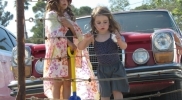
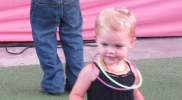
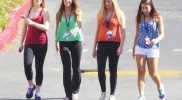
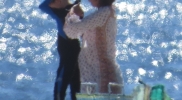
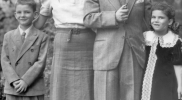
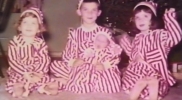
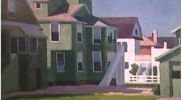
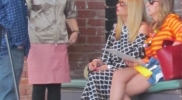
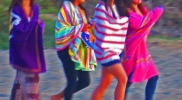
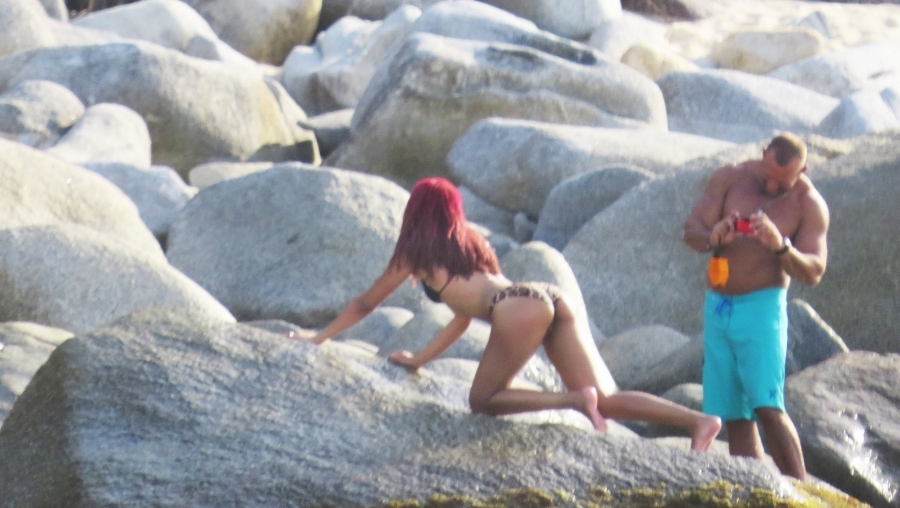
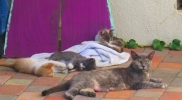
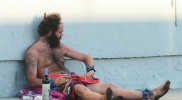
![[000015] [000015]](https://beforetheblog.com/wp-content/gallery/kids/thumbs/thumbs_000015.jpg)
